Peter Boyle, an outstanding epidemiologist who used the power of statistics to help inform and influence policy at European and global levels, died on July 23 after a long illness, at the age of 71.
In an era when Europe was looking to take a lead promoting public health, Boyle was a central figure providing the evidence behind key bits of policy such as the landmark 2003 European Tobacco Products Directive, which restricted the advertising, sponsorship and sales of tobacco, and the European Code Against Cancer ‒ an initiative that aimed to raise awareness about preventable cancer risks.
In an era of molecular biology, Boyle embraced the opportunities to integrate epidemiological and laboratory evidence, when he led the Epidemiology and Biostatistics department at Milan’s newly founded European Institute of Oncology, where patient care and research were done under a single roof.
In an era of ageing populations, Boyle was quick to flag up the ‘cancer timebomb’ this presented at a global level, and to use his position at the head of IARC, the WHO’s International Agency for Research on Cancer, to advocate for research and evidence-based interventions that could make the biggest difference.
But it was his philosophical approach to the job he did that perhaps best accounts for the impact he had on the world of policy. Epidemiology, for Boyle, was never an academic exercise. He made a point of remembering that the statistics he worked with were “patients with the tears wiped away” ‒ representing real people, real lives blighted and lives lost, real families mourning, and he encouraged those who worked alongside him to do the same. When Boyle ended his spell at the European Institute of Oncology to take up his post at the head of International Agency for Cancer Research (IARC), he told Cancerworld that it was the physical proximity to that world that he missed most. “… there are always patients and their families milling about ‒ the reality was there.”
A campaigner against tobacco
Growing up in innercity Glasgow, Boyle had never been a stranger to the realities of cancer. The city had earned the dubious title of the ‘cancer capital of the world’, because of the prevalence of smoking among men. Boyle’s own father was numbered among those smoker statistics, and later also among the deaths from lung cancer. The fight for evidence-based policies to prevent smoking-related deaths was a constant thread running throughout Boyle’s professional life.
After completing a degree in statistics at the University of Glasgow, Boyle’s first encounter with cancer statistics involved documenting the shocking rise in mortality from lung cancer for the West of Scotland Cancer Registry. In timing that was as poignant as it was tragic, Boyle’s father died on the morning of the day he was due to present his findings to an epidemiological association meeting in Edinburgh. As he later commented to Cancerworld, “That was tough ‒ but it was reality.”
Glasgow would go on to become the first city in the UK to ban smoking in public places.
Boyle’s focus on tobacco policy moved to the European stage when he joined the European Cancer Experts Group, set up as part of the Europe Against Cancer initiative, which is where the preparatory work around the 2003 European Tobacco Products Directive was done. Some of that experience, together with lessons learnt by others doing similar public health policy work on tobacco in the US and elsewhere, was presented in his book Tobacco: Science, policy and public health, published in 2004, on which Boyle was lead author. On moving to IARC, that same year, he set up a Tobacco Unit, to better focus the agency’s work on a substance that remains one of the greatest causes of preventable deaths around the world.
An outstanding epidemiologist
Boyle’s influence at a policy level also rested on his strengths as an outstanding epidemiologist. In a career pattern that paralleled what was happening in translational cancer research at the time, it was a spell in the US that gave him the essential groundwork. Leaving his post as Senior Statistician at the West of Scotland Cancer Surveillance Unit, in 1984, Boyle did a short training fellowship at IARC, before landing a position as Assistant Professor at the departments of biostatistics and epidemiology at the Harvard School of Public Health and the Dana-Faber Cancer Institute.
It was the two years spent there, with what he later described to Cancerworld as probably “the best group of biostatisticians ever assembled”, that introduced him to the essentials of the discipline, “the attention to detail ‒ data quality, model selection, examination of interactions…” He also learnt about ways of combining different types and levels of evidence, which would serve him well in his later public health work.
His spell in the US was followed by five years back at IARC, as senior scientist, and then head, of the Surveillance of Environmental Factors Related to Cancer in Humans (SEARCH) programme ‒ a series of case control studies on various cancers, such as pancreatic and children’s brain tumours.
It was this position he left in 1991 to head up the department of Epidemiology and Biostatistics at the European Institute of Oncology (IEO) in Milan. The Institute had been newly founded by the leading breast cancer surgeon Umberto Veronesi, with a vision to make it a centre where clinical, translational, basic and epidemiological research was all done under one roof. Boyle was given the job of heading up the Department of Epidemiology and Biostatistics.
Here he spent more than a decade, building up a team of researchers, and working alongside laboratory and clinical scientists, investigating various aspects of cancer risk and prevention using an approach that combined epidemiological evidence with biological evidence. Many of those who started their epidemiology careers under Boyle are now leading important research work themselves and remember with fondness and gratitude the support and encouragement he gave them in those early days.
A contributor to European and global cancer policy
The move to Milan opened doors for Boyle to get involved at a European policy level. Veronesi was highly influential within Italian politics, and had played a key role in securing cancer a unique position on the European agenda. It was the Italian government that, at the request of Veronesi, had proposed and got agreement on the landmark Europe Against Cancer programme, at a meeting of the Council of Ministers in Milan, in 1985.
It was that programme that set up the European Cancer Experts Group that Boyle participated in, and that drove policy initiatives such the European Code Against Cancer and tobacco regulation.
Work on the European Code Against Cancer occupied much of Boyle’s time in his early years at the Institute. Another brainchild of Veronesi’s, the Code had first been agreed and published as a public health tool in 1989. It highlighted 10 key things people can do, or avoid doing, to lower their risk of getting different types of cancer, which included advice on smoking, alcohol, diet, weight, sun, and exposure to known cancer-causes substances as well as actions promoting early detection.
Boyle’s contribution was to oversee the gathering and synthesis of all the evidence to back up that public health advice. That initial work was published in 1995 as an ‘Advisory Report to the European Commission’.
But it was developments on the wider global stage that were a particular preoccupation for Boyle during this period. Demographic statistics from China and other areas of the developing world were showing a rapid increase in elderly populations. People were living longer, and the trend was greatest in low- and middle-income countries.
His 1997 Lancet article on the Global burden of cancer flagged an important early warning about the “oncological time-bomb of the ageing populations in both developed and developing countries” and the implication that would have for public health. Eight years later, the World Health Assembly – the policy making body of the WHO – would pass a resolution urging governments to prioritise cancer as a major global health problem.
Bringing change to IARC
Boyle left the European Institute of Oncology in 2004 to head up IARC, the World Health Organization’s International Agency for Research on Cancer. Drawing on the knowledge and experience he had accumulated in epidemiology, in public health policy, and working alongside clinical and translational research, he initiated a restructuring that coupled together the Agency’s epidemiology work with its biology/genetics work, and coupled pathogenics work with prevention. He also brought together all aspects of tobacco-related research within a single Tobacco Unit.
IARCs 2008 World Cancer Report, co-edited by Boyle with Bernard Levin, provided an in-depth analysis of the public health crisis he had flagged up in the Lancet more than ten years earlier. It highlighted the need to prioritise identification, delivery and evaluation of effective cancer control measures for use in low- and medium-resource countries, as well as strategies and opportunities for doing so.
Research into prevention and early detection in resource-poor countries is an area IARC had been involved in for many years, most notably in collaboration with cancer centres in India. Boyle played an important role in helping ensure that this work had an impact where it mattered ‒ at a policy level within governments and global health efforts.
When Boyle’s term at IARC came to an end in 2008, he opted to stay in Lyon, where he established the International Prevention Research Institute (i-PRI), an independent organisation providing evidence and guidance on critical health risk issues to private and public sector organisations. He continued as President of the i-PRI until his death.
Tributes
Boyle is remembered with great professional respect by many leaders in the field. Carlo La Vecchia, Professor of Medical Statistics and Epidemiology at the University of Milan, who worked with Boyle on many research projects over the years, summed up Boyle’s achievements for Cancerworld.
“Peter Boyle gave a substantial contribution not only to cancer prevention and control, but also to cancer management and treatment worldwide. He had a unique sense towards understanding priorities for cancer control, as shown by his seminal works on tobacco, alcohol, nutrition, occupational carcinogens, etc. In the 1990’s he concentrated on cancer control and management in previous non market economy countries of central and eastern Europe, in order to close the cancer gap within Europe. Over the last few years, he focused on cancer control and treatment in low income countries, particularly from Africa – again reflecting his global approach towards global cancer priorities.”
Paolo Boffetta, Associate Director for Global Oncology of the Tisch Cancer Institute at the Icahn School of Medicine at Mount Sinai, New York, who worked with Boyle in particular on research elucidating the cancer risk posed by alcohol, says Boyle should be remembered as “an incredible leader in chronic disease epidemiology and prevention, whose contribution encompasses methodological research, identification of actionable causes of cancer and other diseases, and development of effective policies, with unique ability to match clinical and population sciences.”
In a warm tribute by Otis Brawley, formerly the Chief Medical and Scientific Officer and Executive Vice President of the American Cancer Society, and now Bloomberg Distinguished Professor of Oncology and Epidemiology at Johns Hopkins University, Peter Boyle is remembered as “one of the great epidemiologists of our time,” alongside Sir Austin Bradford Hill, Sir Richard Doll, Sir Richard Peto and more.
Brawley mentions Boyle’s mentoring of young scientists as one of the things he was probably most proud of. Recalling the annual National Cancer Institute Directors (NCID) Meetings hosted by Boyle from the mid 1990s onwards, Brawley says Boyle “always made sure that a large number of young scientists were invited to ‘hang out’ with the movers and shakers in the cancer public health community. He always found sponsorship for those from developing nations who could not afford to pay their way.”
That generous attention to supporting and mentoring people just starting out in their careers is remembered with particular gratitude by Sara Gandini, now Group Leader at the Molecular and Pharmaco-Epidemiology Unit at the European Institute of Oncology, and Adjunct professor in Medical Statistics at University of Milan.
In a conversation with colleagues on Facebook, she writes, “It’s thanks to [Boyle] I became an epidemiologist… I was coming back from England and, while Italian academics made me understand that ‘free players’ were not appreciated, he looked at my resumé and gave me a research post, made me study and work at Harvard, sent me to present at major international conferences… ‘You can do it Sara!’”
Many of Gandini’s colleagues chime in with other fond memories of a man who gave them a chance, who believed in them and supported them ‒ and in doing so helped them make their own important contributions to cancer epidemiology.
They remember too a man with a sense of humour, who used to make fun of “us researchers” for the campaigning attitude they brought to their work, asking them: “How come I’m always surrounded by communists?”
“Peter had a deep sense of social justice in his soul, which is why he had a natural affinity with us ‘extremists’,” one colleague comments.
“Undoubtedly, if one wanted to make money and a career, one wouldn’t choose to be an epidemiologist,” notes Gandini. “The passion for independent research was what drove all of us and he was a researcher with ambitious and contagious dreams. Peter Boyle. RIP.”
Boyle died in his family home in Lyon. He is survived by his wife Helena, a brother, three daughters, two sons-in-law and three grandchildren.





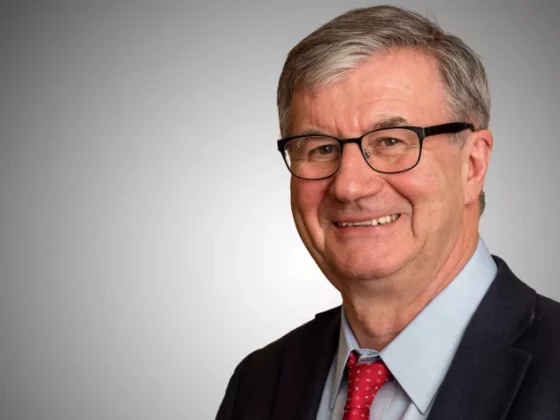
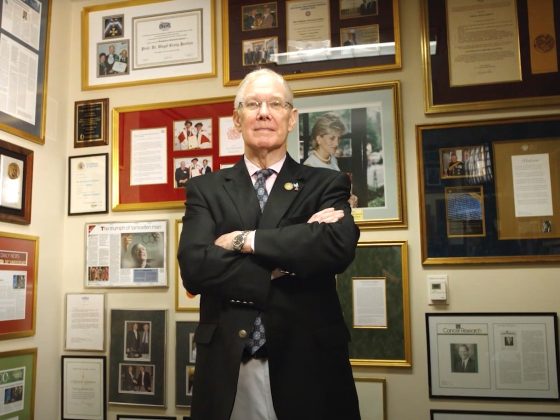
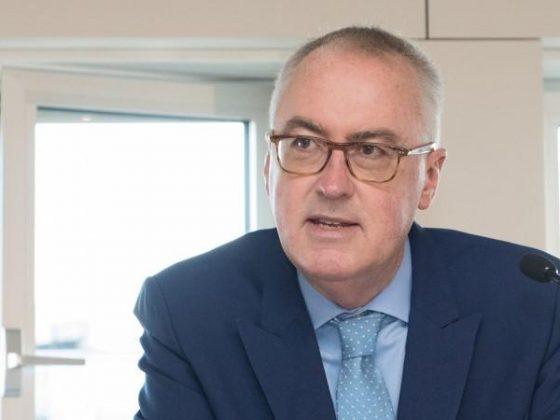
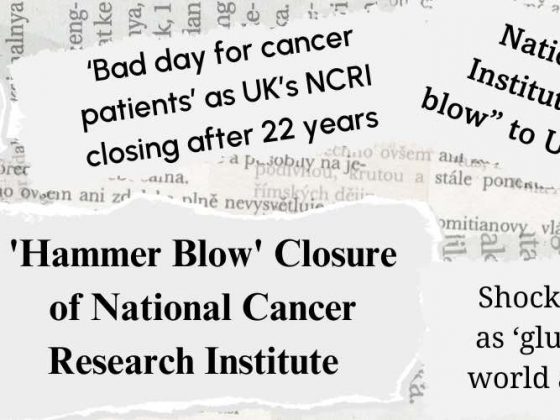
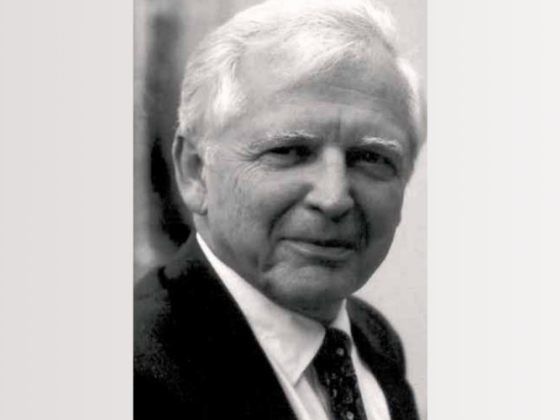
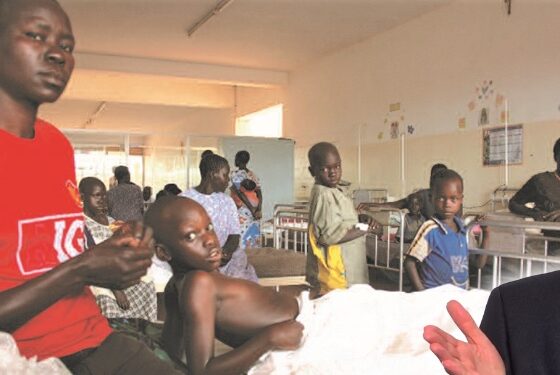
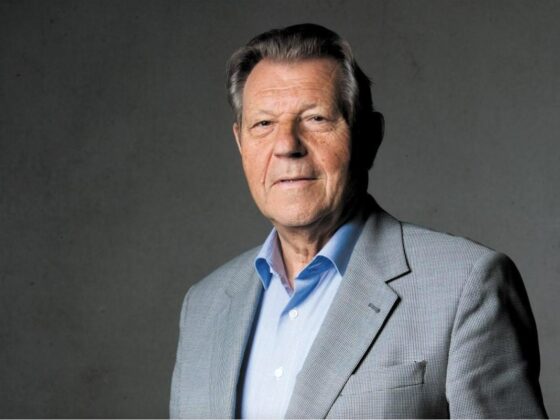
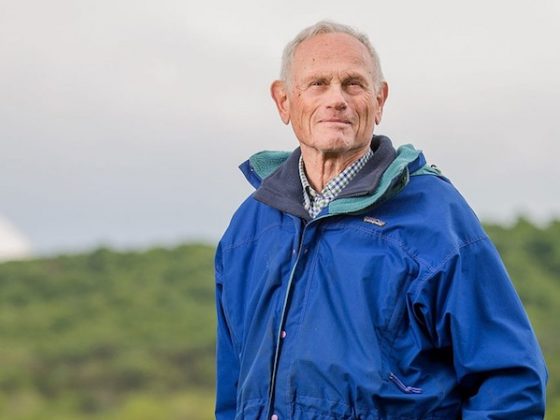
1 comment
Peter has a global view about cancer worldwide coming from high developed countries to low income more, supporting communities for early diagnosis prevention and cancer registration
He opened opportunities for young scientists besides creating a bench with experienced scientists worldwide. He left a history will remains forever. Thank you !
Comments are closed.